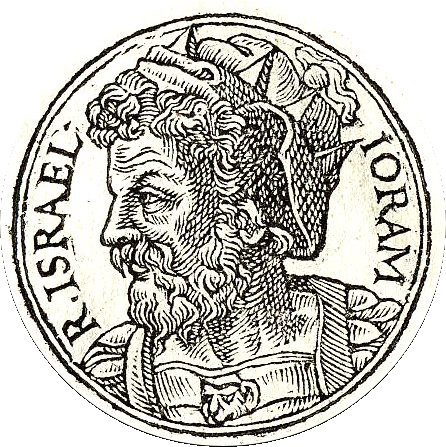
Joram, also known as Jehoram, was a notable figure in Biblical history, remembered predominantly for his reigns as King of Israel and later as King of Judah. His reigns are often highlighted for their wickedness in Biblical accounts. Joram of Israel ruled from approximately 852 to 841 BC, while Joram of Judah reigned from 849 to 842 BC. Both kings are criticized in Biblical texts for perpetuating idolatry and straying from religious tenets, marking their reigns as periods of moral and spiritual decline in their respective kingdoms.
Joram of Israel
Joram, the King of Israel, ascended to the throne after the death of his brother Ahaziah. His rule is characterized in the Biblical accounts, particularly in the Books of Kings and Chronicles, as a period marked by idolatry and departure from the religious practices of Judaism. Despite his attempts to reduce the worship of Baal, compared to his mother Jezebel and father Ahab, Joram’s reign failed to fully return to the monotheistic worship of Yahweh, resulting in a period of spiritual and moral decline.
Joram of Judah
Joram of Judah, a descendant of King David, is often confused with his namesake in Israel but was a separate ruler. His reign, documented in the Second Book of Kings and the Second Book of Chronicles, was marred by similar themes of religious and moral decay. He married Athaliah, the daughter of Ahab and Jezebel, which further influenced his reign towards idolatrous practices, straying from the traditions of his forefathers.
Their Legacies and Impact
The reigns of both Jorams, while distinct, share a common legacy of deviating from traditional Jewish religious practices and fostering an environment where idolatry flourished. Their actions had significant religious and political consequences, contributing to the weakening of their kingdoms and spiritual disintegration among their people. These kings are often cited in theological studies as examples of the dangers of straying from religious doctrines and ethical leadership.
In conclusion, the reigns of Joram of Israel and Joram of Judah represent significant periods in Biblical history, serving as cautionary tales of leadership that deviated from religious and moral paths. Their stories are critical in understanding the complex history of the Israelite and Judahite kingdoms and their spiritual journeys.
References
- Albright, W. F. (1956). “From the Stone Age to Christianity.” Baltimore: Johns Hopkins Press.
- Bright, J. (1981). “A History of Israel.” Philadelphia: Westminster Press.
- Finkelstein, I., & Silberman, N. A. (2001). “The Bible Unearthed.” New York: Free Press.
- Kirsch, J. (1997). “King David: The Real Life of the Man Who Ruled Israel.” Ballantine Books.
- Miller, J. M., & Hayes, J. H. (1986). A History of Ancient Israel and Judah.” Westminster John Knox Press.
- Thinking to Believe. “Biblical Archaeology 4: The Moabite Stone a.k.a Mesha Stele.” Accessed December 25, 2023.
- Jewish Encyclopedia. “Jehoram (Joram).” Accessed December 25, 2023.
- Thiele, E. R. (1983). “The Mysterious Numbers of the Hebrew Kings.” Zondervan.
